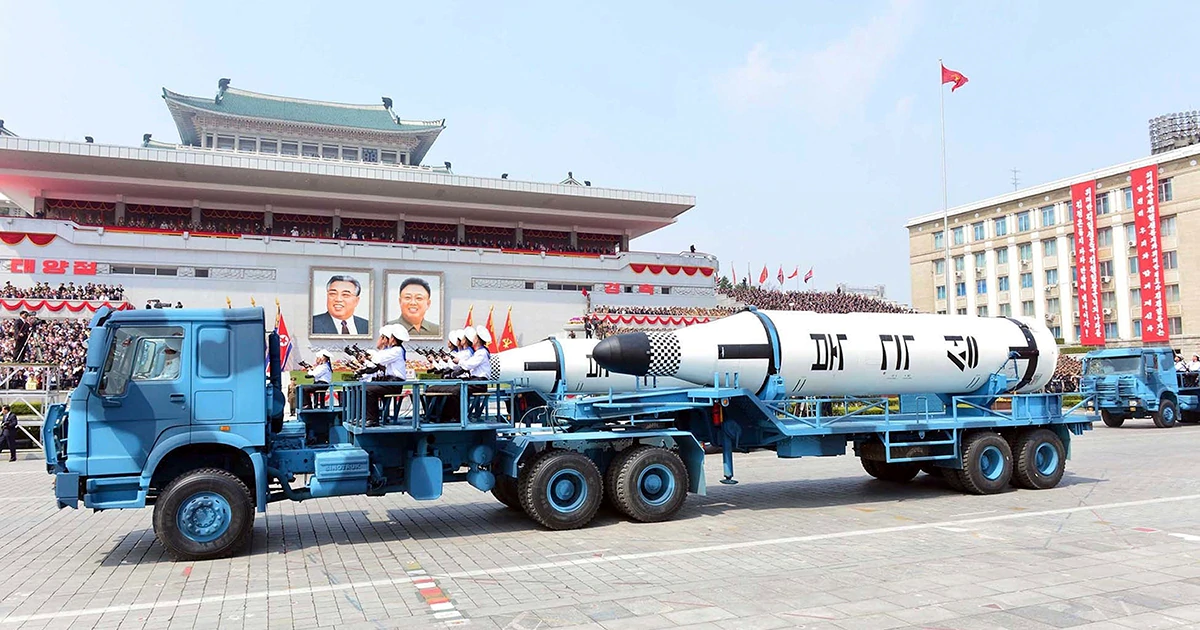
SEOUL, South Korea — North Korea may soon conduct its first underwater-launched ballistic missile test in about a year, a top South Korean military official said Wednesday, amid long-stalled nuclear talks between the North and the United States.
In written remarks to lawmakers ahead of a confirmation hearing, Won In-choul, the nominee for chairman of South Korea’s Joint Chiefs of Staff, said North Korea has been repairing recent typhoon damage at its northeastern Sinpo shipyard, a place where it builds submarines.
Shortly after the repairs are complete, there is a chance it will carry out a submarine-launched ballistic missile test, Won said. He said South Korea’s military is keeping a close watch on developments there, according to a copy of his remarks provided by a lawmaker, Kang Dae-sik.
/arc-anglerfish-arc2-prod-mco.s3.amazonaws.com/public/72RDRNBH35GEVO5W4LOZCZZMFA.jpg)
North Korea says submarine-launched missile test succeeded
North Korea confirmed Thursday it has carried out its first underwater-launched ballistic missile test in three years, in an apparent bid to dial up pressure on the United States ahead of a weekend resumption of their nuclear diplomacy.
In recent years, North Korea has been pushing hard to acquire the ability to launch missiles from submarines in what experts say is a worrying development because such weapons are difficult to detect before launch. A test of an underwater-launched missile by North Korea last October was the first of its kind in three years, and the most provocative weapons test since North Korea entered nuclear negotiations with the U.S. in 2018.
The nuclear talks have made little headway since the second summit between North Korean leader Kim Jong Un and U.S. President Donald Trump in Vietnam in early 2019 collapsed due to disputes over U.S.-led sanctions against North Korea.
Jung Changwook, head of the private Korea Defense Study Forum in Seoul, said North Korea could perform a submarine-launched ballistic missile, or SLBM, test to upgrade its nuclear attack capability and put pressure on Washington after the U.S. presidential election in early November.
There has been speculation that North Korea may test such a missile before the anniversary of the founding of its ruling Workers’ Party on Oct. 10. Jung said that is possible, but stressed that North Korea is aiming more at pressuring the U.S. rather than celebrating its state anniversary.
Some experts say it’s unlikely that North Korea will conduct any major weapons test soon because it is grappling with multiple crises, including typhoon damage, the coronavirus pandemic that led to the closure of its border with China — its biggest trading partner — and harsh U.S.-led sanctions.
/arc-anglerfish-arc2-prod-mco.s3.amazonaws.com/public/2W6EJTE3LFGOBC5SDO5JFON7T4.jpg)
Kim inspects new submarine, wants North Korean military bolstered
North Korea leader Kim Jong Un has inspected a newly built submarine and ordered officials to further bolster the country’s military capability, state media reported Tuesday, as the North is increasing its pressure on the United States ahead of the possible resumption of nuclear diplomacy.
Foreign experts say past North Korean underwater-launched missile tests were conducted from a submersible barge with a single launch tube, not a functioning submarine. In July 2019, North Korean state media said Kim inspected a newly built submarine which observers said appeared to be the North’s most sophisticated model with several launch tubes.
Jung said the possible upcoming test would also be made from the barge, not the new submarine, to not provoke the United States too much.
According to 38 North, a website specializing in North Korea studies, recent satellite images of the Sinpo shipyard show the repositioning or departure of the submersible test barge. It said the barge’s location “may signal an impending SLBM test though conducting such a launch on the heels of a destructive typhoon seems unlikely.” It said the barge may have been moved somewhere for repairs.
Jung said a missile fired from the barge would have a potential range of 300-500 kilometers (185-310 miles), thus posing no direct threat to the U.S. mainland. Despite the deadlocked nuclear talks, North Korea hasn’t conducted nuclear or long-range missile tests in an apparent bid to keep chances for a resumption of diplomacy alive.


Be the first to comment